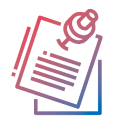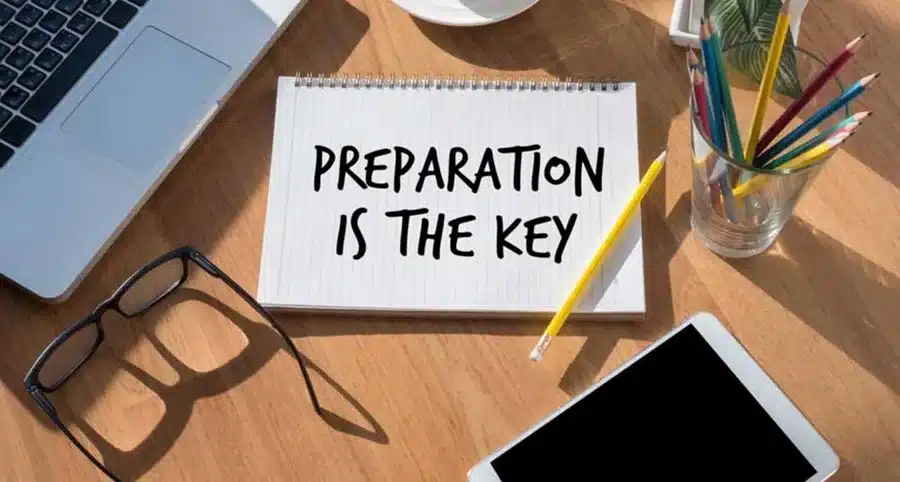For many people, the thought of going to a job interview can be daunting. Whether you’re a native English speaker or someone for whom English is a second language, it’s important to know what employers are looking for and how to make a great impression.
An interview is a chance for an employer to see if you’re the right person for the job. It’s also a chance for you to make sure the job and company are the right fit for you.
Here are some tips for acing your next job interview with advice on how to prepare, and how to show what you have to offer.
Types of Interviews

There are different types of interviews which employers might use. Prepare specifically for the one you’re attending.
One-to-one Interview
Panel Interview
Group discussion
Your interview may only be with one person. This is usually face-to-face, and is more common in smaller companies.
Some interviews are with a panel of 2 or more people. Make sure you look at all the interviewers when you’re speaking to them. They may also ask you to do a presentation.
A group discussion is usually part of an assessment centre day with other candidates. You’ll have to show you can get along with people, put your ideas forward and be respectful towards others.
10 most popular job Interview questions
| Top 10 job interview questions | How often the question is asked |
|---|---|
| 1. Tell me about yourself. | 73% |
| 2. What are your greatest strengths? | 61% |
| 3. What are your greatest weaknesses? | 60% |
| 4. Why do you want to work for us? | 55% |
| 5. Where do you see yourself in five years? | 46% |
| 6. What are your salary expectations? | 43% |
| 7. Why are you leaving your current job? | 42% |
| 8. Why should we hire you? | 34% |
| 9. Do you have any questions for us? | 34% |
| 10. What are your career goals? | 32% |
Here are some tips on how to answer the above questions :
1 – Tell me about yourself

Complete Tip : Keep your response professional and focused on your career, highlight your skills, experience, and what makes you unique as a professional.
Do´s
✔︎ Keep it professional, highlighting skills and experience that are relevant to the job
✔︎ Be concise and clear
✔︎ Mention achievements that will be interesting or impressive to the interviewer
Don´ts
✘ Share too many personal details or life stories
✘ List out your entire career or education history. Stick to what is relevant
✘ Lose the interviewer´s attention by rambling on

Example answer: I’ve been in the marketing industry for over five years now, primarily working in account and project management roles. I most recently worked for a large tech company managing large marketing campaigns and overseeing other project managers. And now I’m looking to expand my experience across different industries, which is why I’m so interested in joining an agency like yours.
2 – What are your greatest strengths?

Complete Tip : Choose strengths that are directly relevant to the job you’re interviewing for. Use examples to demonstrate these strengths in action.
Do´s
✔︎ Use positive adjectives like, dedicated, hard-working, empathetic, patient, honest, collaborative
✔︎ Provide examples of how your strengths have helped you achieve things in the past
✔︎ Be honest and genuine
Don´ts
✘ Lie about your abilities
✘ Just give generic responses like, «I´m a teamworker». Add specific examples of how and when
✘ Neglect soft skills like, communication, problem solving and time management

Example answer: One of my key strengths is my ability to problem-solve under pressure. During a critical product launch at my last job, we hit a major roadblock. I was able to facilitate a creative brainstorming session that led to a solution and kept us on schedule.
3 – What are your greatest weaknesses?

Complete Tip : Choose a genuine weakness and one way that you are working on trying to improve. Choose a weaknesses that still communicates a strength.
Do´s
✔︎ Be honest but strategic
✔︎ Highlight a weakness that you have actively worked to improve on
✔︎ Show humility and self-awareness
Don´ts
✘ Say you don´t have any weakenesses
✘ Give clichéd responses without giving examples of how and when
✘ Reveal a weakness that you know is a key competence for the job

Example answer: My greatest weakness is that I sometimes focus too much on the details of a project and spend too much time analysing the finer points. I am trying to improve in this area by refocusing on the bigger picture. That way, I can still ensure quality without affecting productivity or the team’s ability to meet the deadline
4 – Why do you want to work with us?

Complete Tip : Show the interviewer you’ve researched the company and express enthusiasm about what they do. Align their mission and values with your own.
Do´s
✔︎ Show that you’ve researched the company and understand its values
✔︎ Mention what you can contribute to the company
✔︎ Align your professional goals with what he company is offering
Don´ts
✘ Say you want the job just because of the salary
✘ Give generic answers that could apply to any company
✘ Show lack of knowledge about the company

Example answer: I’ve been following the company´s trajectory for some time now and love what you do. I appreciate how you prioritise customer experience and invest in innovation. I believe my experience would be a great fit for your future projects.
5 – Where do you see yourself in 5 years time?

Complete Tip : Show you are ambitious but realistic at the same time. Emphasise the things you hope to learn and improve on.
Do´s
✔︎ Show ambition but also realism
✔︎ Demonstrate commitment to your chosen career path
✔︎ Align your long term goals with those of the company
Don´ts
✘ Tell the interviewer that you expect to be in his/her position
✘ Say that this job is just a stepping stone to another job/position
✘ Give a vague answer

Example answer: In five years time, I see myself in a leadership role where I can use my skills to impact the company positively. I’m really excited about the possibilities this position would offer.
6 – What are your salary expectations?

Complete Tip : Do your research to understand what is typical for the role and industry. Be honest but flexible.
Do´s
✔︎ Before the interview, research average salaries for the role
✔︎ Give an honest expectation
✔︎ Show that you are willing to negotiate
Don´ts
✘ Undervalue yourself
✘ Give a very specific number unless you are asked
✘ Make the salary the primary focus of the interview

Example answer: I’m looking for a competitive salary that reflects my experience and skills. Having said that, I am more interested in finding a position that’s a good fit for my career goals.
7 – Why are you leaving your current job?

Complete Tip : Be honest and positive. Focus on what you’re hoping to gain in the future. Never dwell on any negative aspects of your current or past job.
Do´s
✔︎ Be honest
✔︎ Focus on the things you are looking to gain and learn from a new opportunity/job
✔︎ Be enthusiastic about the job on offer
Don´ts
✘ Speak negatively about your current/previous colleagues/employers
✘ Give specific details of past «problems»

Example answer: I’ve learned a lot in my current role, but I’m looking for a new challenge and an opportunity to further develop my professional skills, which is why I was excited to see this opportunity.
8 – Why should we hire you?

Complete Tip : Highlight your most relevant skills and experiences. Show how you’ll bring value to the company.
Do´s
✔︎ Emphasise relevant skills and experience
✔︎ Show that you can add value to the company
✔︎ Be confident and assertive
Don´ts
✘ Repeat exactly what you have written on your CV
✘ Be overly arrogant
✘ Give generic responses that could apply to any candidate

Example answer: I believe you should hire me because my unique skills in project management align perfectly with the job description. I have shown in the past that I can successfully manage teams and meet deadlines, and I believe I could bring a lot to your team.
9 – Do you have any questions for us?

Complete Tip : Always have a few questions prepared. This shows your interest in the company and can potentially get some of your doubts put to rest.
Do´s
✔︎ Ask questions that show you ´ve done your homework
✔︎ Use your questions to decide if the company is right for you
✔︎ Show interest in the potential role and the company´s future
Don´ts
✘ Say you have no questions at all
✘ Ask about salary or benefits right away
✘ Ask questions you already know the answer to

Example answer: What are the biggest challenges the team is currently facing and how could someone in this role help address them?
10 – What are your career goals?

Complete Tip : Show ambition and a desire for professional growth and development.
Do´s
✔︎ Be honest about your aspirations
✔︎ Demonstrate your motivation and ambition
✔︎ Emphasise your interest in professional growth and development
Don´ts
✘ Mention goals that are irrelevant to the company or position
✘ Mention goals that signify you are not interested in the job for the long term
✘ Be too vague or, on the other hand, far too specific

Example answer: One of my career goals is to lead a successful team in the tech industry, developing innovative solutions to complex challenges. I believe this position will help me cultivate the necessary skills to achieve this.
Prepare your Interview

To help make sure you’re prepared for your interview, here are some tips :
- Read the job description and specifications carefully : Be clear on the skills and qualities the employer is looking for and answer questions accordingly.
- Research the company you are doing the interview for : Check the company website to find out more about its products or services and their plans for the future
- Prepare for common interview questions : Go over your CV or application form and think about things the employer may ask you. Things like, «Tell me about yourself, «Why do you want to work here?» and «What are your strengths and weaknesses?» Make sure your answers are concise, to the point, and highlight your strengths and achievements. Prepare some examples that show you have the right skills, personal qualities and experience.
- Ask a few questions – Think of 2 or 3 questions of your own that you can ask at the end of your interview, to show you’re enthusiastic about the job
- Dress appropriately : Choose something suitable and comfortable to wear. First impressions are important, so make sure you dress appropriately for your interview. Research the company’s dress code and choose clothing that’s appropriate for the role and the company culture
- Be punctual : Check what time you need to arrive, where you need to go, how to get there and the name of the person you need to see. Arrive at the interview 10 to 15 minutes early. This shows that you’re responsible and respectful of the interviewer’s time. If you arrive too early, wait in your car or a nearby coffee shop until it’s closer to the interview time. Just in case, make sure you know who to call in case you’re late for any reason.
- DO NOT lie : if you lie in a job interview, generally you will eventually be found out.
The Interview

Before
Before you go into the interview:
- turn off your phone
- use breathing techniques to calm yourself down – try to remember, nerves are normal and at the end of the day, only 2 things can happen! You will either get the job or not.
- smile and greet your interviewer with confidence
During
During the interview:
- Be polite – use the right language and tone for a formal situation.
- Make eye contact and smile – Making eye contact and smiling during your interview is important. It shows that you’re confident and interested in the position. But, don’t overdo it. Maintain a natural, professional demeanour throughout the interview.
- Listen to the questions and think before you begin your answers – During your interview, listen actively to the interviewer’s questions and respond thoughtfully. Avoid interrupting the interviewer, and take the time to think about your answers before you speak. Make sure to ask clarifying questions if you’re not sure what the interviewer is asking or don´t understand the question.
- STAR – use the STAR method to answer questions about your skills and experience. STAR stands for –
Situation – the situation you had to deal with
Task – the task you were given to do
Action – the action you took
Result – what happened as a result of your action and what you learnt
- Be positive about your experiences – If you´ve confronted difficult situations, show what you learnt from them.
- Honesty is the best policy – be honest and assertive.
- Show enthusiasm about the job on offer – Employers want to see that you’re passionate about the job and the company. Show your enthusiasm by asking questions about the company, the role, and the team you’ll be working with. Let the interviewer know why you’re interested in the position and what you hope to achieve if you’re hired.
- Ask a few questions – when given the opportunity, ask a couple of questions. Choose questions that make you sound keen. For example, “What opportunities are there for training with the company?” It’s best not to ask about pay or holidays at this stage
- At the end of the interview – be sure to thank the interviewer for their time and tell them you’re looking forward to hearing from them
After
When you leave the interview, try to reflect on some of the harder questions you were asked – this can help you to prepare for future interviews.
Accepting a job
If you’re offered the job, let the company know in good time whether you want to accept the offer. You can also agree when you’ll start and find out what you’ll need to do on your first day.
Turning down a job
If you decide not to accept the job, turn it down but be polite. You may want to work for them in the future.
If you’re not successful
If the employer does not offer you the job:
- try to be positive – this is a chance to learn from your experience and build your resilience. It´s not the end of the world!
- ask for feedback on your interview
- think about the things that did not go so well and what you could do to improve next time
- get some interview practice
To conclude
Acing a job interview takes preparation, effort, and a good understanding of what employers are looking for. By researching the company and the job, preparing for common interview questions, dressing appropriately, being punctual, making eye contact and smiling, listening actively, showing your enthusiasm for the job, and following up after the interview, you’ll increase your chances of landing your dream job.
Good luck!
